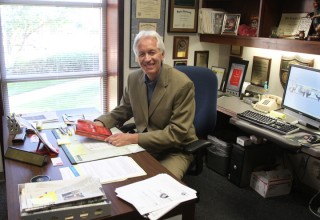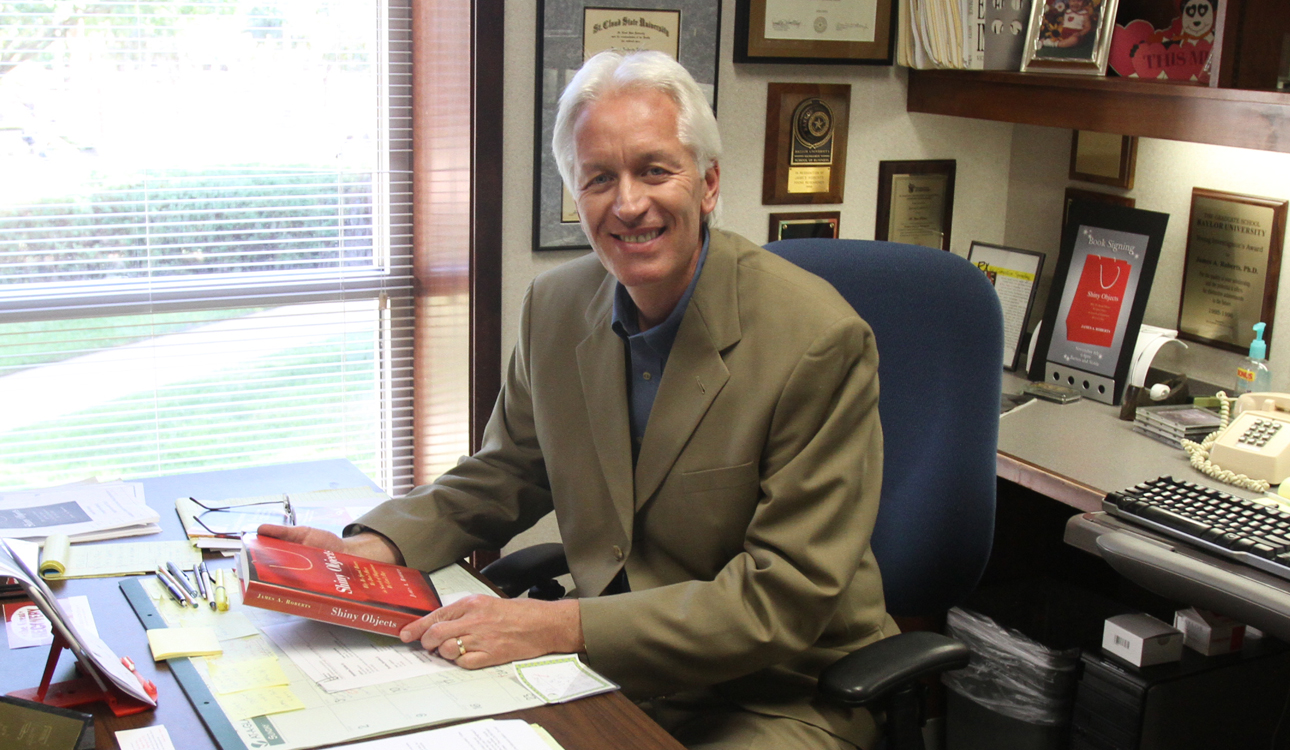
Courtesy Photo
By Jade Mardirosian
Staff Writer
People looking to increase their overall well-being and happiness should try to find the right balance between being too busy and not busy enough, according to research done by a Baylor professor.
Dr. James Roberts, professor of marketing and holder of the Ben Williams Professorship in Marketing, and Dr. Chris Manolis of Xavier University, conducted research on the relationship between happiness and materialism, and whether those were impacted by how much or how little time people perceive they have.
Roberts said the core finding from the research is that people should be looking to find a good balance in their time, or a sweet spot.
“Too much spare time didn’t make adolescents happy, and too little undermined well-being as well,” Roberts said. “That middle ground, that moderation and having the right amount of free time reduced the negative impact compulsive buying and materialism has on well-being.”
About 1,300 ninth and 10th graders at a Cincinnati high school were surveyed for the study, which is published online in the journal for Applied Research in Quality of Life.
Though the study was conducted on data collected from high school students, Roberts said the same conclusions could be applied to college students and adults.
“We have to find that right balance where college students, and adults alike, have enough to do and are occupied enough with work and things [they] enjoy, but are not stressed [to the point where they] cannot enjoy the finer things in life,” Roberts said.
Roberts noted an old expression that sums up these findings.
“Having too much time is like the old saying ‘idol hands are the devil’s workshop’ — that’s the idea that when [people] have too much free time [they] go around looking for stuff to do and run into trouble,” Roberts said.
Materialism and compulsive buying contribute to unhappiness when people try to fill their time with spending money frivolously, Roberts said.
“The things that really make us happy are how we feel about ourselves, the quality of our relationships and the amount of participation we have in the bigger world around us [through things like] social activities,” Roberts said.
“We have been sold into thinking we are just one purchase away from being happy and the next purchase will be the one that finally makes us happy [but] that is just not true.”
Dr. Michael Frisch, professor of psychology, is teaching the first ever positive psychology class at Baylor.
He said positive psychology is all about human happiness and meaning, and looks at how people spend their time.
“It is better to over schedule than under-schedule teenagers and young adults because it is very important that people have a purpose and a full day, a full schedule,” Frisch said.
Frisch also said that other research supports the approach of finding happiness through a certain level of inner abundance, or time for oneself.
“Time for self care is a time that we all need,” Frisch said. “We all need time to recharge our batteries and relax.”
Frisch said for college students, the challenge is filling their time with important things that work to find a purpose to their life.
“[College students should] be very active pursuing purposes that are passions and that [they] are excited about in their life,” Frisch said. “At the same time, finding time to pursue your passions while serving other people can be a good way to preserve a meaningful life.”






